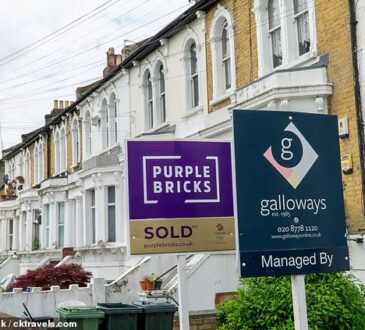Video: Driver hits gate arm on bridge to Palm Beach
A woman in a black Mercedes Benz SUV smashed into the gate arm in the eastbound lanes of the Flagler Memorial Bridge to Palm Beach on March 18, 2025.
- If Palm Beach does not acquire the easements needed for the Midtown Beach Nourishment project by July 31, that project will be delayed until 2027, town staff said during the March 27 meeting.
- Public Works Director Paul Brazil said if the private owners’ refusal could put the 50-year beach management agreement between the town and the U.S. Army Corps of Engineers at risk.
- Board members were especially critical of The Breakers, since the permit for its breakwaters project was tied to the sand placements the resort now refuses to grant the easements for.
The federally backed Midtown Beach Nourishment Project to replace the sand lost to Hurricane Nicole may not happen in 2026 if Palm Beach doesn’t get the perpetual easements needed for the project by July 31, town officials say.
If property owners near the center of the beach nourishment project that would stretch from Casa Bendita south to Gulfstream Road continue to refuse to sign the easement agreement, the U.S. Army Corps of Engineers may end its 50-year Midtown nourishment agreement with Palm Beach, Public Works Director Paul Brazil warned during the Shore Protection Board’s March 27 meeting.
“We can only go so far in modifying the (scope) where it is still federally viable,” Brazil said.
Those easements are contentious, as they would convert the shoreline into a public beach indefinitely, Brazil said. However, if the Corps scraps the agreement, that would mean the loss of tens of millions of dollars’ worth of federal funding, he said.
Board members said they understood the concern owners have over private property rights, but they criticized them for putting their concerns for a few feet of land over the loss of millions of federal dollars for the town’s coastal protection efforts.
“People are arguing over the legality of something that is kind of minimal,” Vice Chair Ronald Matzner said.
Chair Melissa Ceriale called for a public campaign to pressure private owners to sign on to the perpetual easement.
“It just makes no sense, we are a town, we are a community, and people need to work together to be a town,” Ceriale said. “One hole in the system, wrecks the system — it’s not that we are all individuals here, we are a barrier island, and we must protect the island as the barrier.”
The holdouts include 11 property owners between Wells Road south to Sunrise Avenue. Several of those owners are in active litigations against the town, after they sued in 2022 over the town’s alleged failure to enforce its trespass ordinance. They are seeking to bar people from using the beach on their property.
Board members also were critical of The Breakers and Leonard and Judy Lauder at 126 S. Ocean Blvd., over their refusal to sign the easement agreement, while they construct a breakwater project whose approval from the Florida Department of Environmental Protection was tied to the beach nourishment effort.
“They could not have received permits to put in those new structures without the overall program where sand is placed by the town,” said the town’s consultant Mike Jenkins, a coastal engineer with West Palm Beach-based Applied Technology & Management said.
When completed, the breakwaters will extend from the Breakers south to the northern edge of the public beach east of Clarke Avenue, known as Clarke Beach.
Without the sand placements, Jenkins said, the breakwaters at the northern edge of Clarke Beach would impede the southern flow of sand and wash away sand at Clarke Beach.
Although state environmental officials require the Breakers’ project to mitigate any potential erosion caused by the breakwaters, the town still needs the hotel to grant an easement for the federal beach nourishment project.
Ceriale said the board will work with the town to discuss the best way to publicize the importance of the Midtown project, and why the perpetual easements are needed.
Under the 50-year Midtown Beach nourishment agreement between Palm Beach and federal officials, the U.S Army Corps of Engineers covers 50% of the cost of regular maintenance projects, and 100% of the cost of emergency sand placements, like the project scheduled for 2026.
The project, and its federal dollars, are tied to the town obtaining perpetual easements from all the affected property owners.
While the Corps was able to use temporary easements during the 2020 Midtown Beach Nourishment Project, Brazil said the federal government has since required the Corps to obtain perpetual easements for all of its beach nourishment projects.
He noted that during the Town Council’s Feb. 11 meeting, Breakers’ attorney William Perry argued that federal law would only require the resort to grant a temporary easement for the nourishment project.
However, the town must follow the Corps’ interpretation of the Water Resources Development Act of 2024, Brazil said. But that interpretation hasn’t been issued, since it relies on the guidance set by the assistant secretary of the Army, a position the Trump Administration has yet to fill.
The Corps also will require long-term easements for the regularly scheduled nourishment projects that are part of the 50-year agreement, he said.
Brazil said the town has asked the Army Corps to change the language concerning easements from perpetual to 50 years, and add wording that guarantees that the land west of the state’s erosion control line remains private property.
The Corps has not responded to either request, he said.
Diego Diaz Lasa is a journalist at the Palm Beach Daily News, part of the USA TODAY Florida Network. You can reach him at dlasa@pbdailynews.com.



